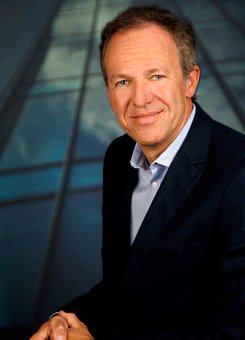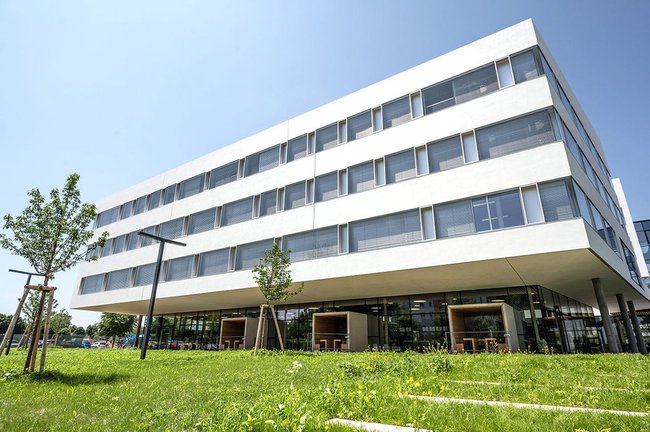“Excellence" in All Areas of Sustainability
The Campus St. Pölten Was Awarded for Sustainability When Still in the Construction Stage. An Interview With Auditor Reinhard Labugger.
The sustainable construction and operation of the new building were already an inherent component of the planning process. At the so-called pre-certification by the Austrian Sustainable Building Council (ÖGNI) last autumn, the new Campus was awarded the gold certificate for sustainable educational building.
Interview: ÖGNI-Auditor Reinhard Labugger
Reinhard Labugger, consultant for civil engineering and auditor at the ÖGNI told us what makes a building sustainable and what’s so special about the new Campus St. Pölten.
You evaluated the new Campus St. Pölten according to a set of sustainability criteria. What were these criteria?
Labugger: The ÖGNI evaluates buildings based on the guidelines of the German Sustainable Building Council (DGNB). This means that we do not only assess the project as such but its entire life cycle. We place a special focus on the three main pillars of sustainability – ecological, economic and socio-functional aspects.
Can you give us some examples?
Labugger: “Ecological aspects” entail the building’s full life cycle assessment, starting with its construction and ending with its demolition or reutilisation. We also assess the use of selected products and their potential dangers for the environment. “Economic aspects” refers to the life cycle costs. In addition to manufacturing costs, this field also covers the ensuing costs for usage, refurbishment, cleaning costs, etc. over a cycle of 50 years. The pillar “socio-functional aspects” is all about the users. How do they perceive the building? How is the building designed in terms of thermal and acoustic comfort, air quality and, accessibility? Are there any windows or skylights? In addition, we analyse whether the future users were given the possibility to participate in the process.
What makes the Campus St. Pölten so special?
Labugger: The Campus St. Pölten has been gold- or platinum-certified in all evaluated areas. These are great results which are a tribute to the excellent and consistent planning process in all fields of sustainability. We auditors were especially glad to award the platinum certification in the area of ecology, as this is something we rarely do. Next to making sure to achieve good results in life cycle assessments, this certification was made possible by paying special attention to the ingredients of the products used. International studies have shown that this leads to higher employee satisfaction, less sick leaves and a more positive perception of the facilities in the long term.
Is there still room for improvement?
Labugger: The Campus St. Pölten has succeeded in achieving a very good benefit-cost ratio – in other words, the additional costs for more sustainable products and processes provide a good value for the money invested. Of course, there are areas where it might have been beneficial to be a bit stricter, but the added value would have been comparably low and the additional costs disproportionally high. So in the end, it’s also important to balance things.
About the Person

Reinhard Labugger | Copyright: Sissi Furgler Fotografie/RM-Engineering
Dipl.-Ing. Reinhard Labugger is a founding member of the ÖGNI. He is a civil engineering consultant and the owner of RM Engineering, which specialises in sustainable building, construction and management.
Sustainable development is important to us
We support the achievement of the United Nations Sustainable Development Goals.
#sustainability #sdg #sdgs

